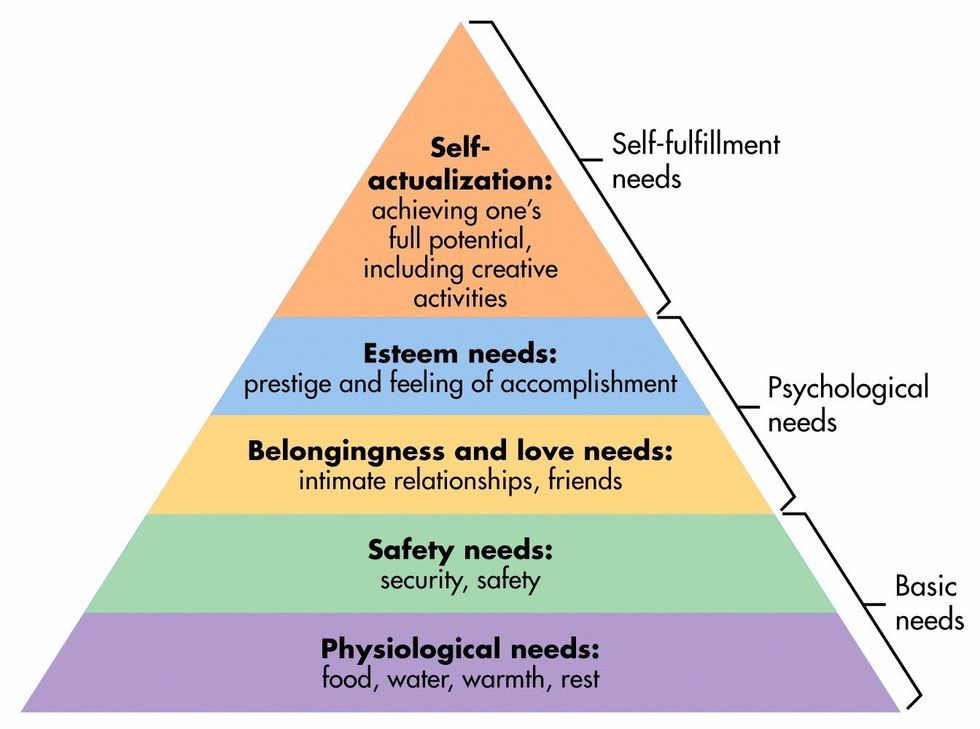If you’ve never taken a psychology class or read The Fault in Our Stars, you may not be familiar with Maslow’s Hierarchy of Needs. Basically, this guy (Abraham Maslow) came up with this idea in the 40's that dictates the order that people’s needs should be met.
In this diagram, the bottom of the triangle contains the most basic needs, then moves up the triangle. Not until you have food, shelter, love, and self-esteem can you be creative or operate with morality.
Hazel Grace Lancaster of John Green's The Fault in Our Stars had a problem with this idea in the same way I do. She argued that she isn’t any less artistic or philosophical just because she isn’t healthy:
“According to Maslow, I was stuck on the second level of the pyramid, unable to feel secure in my health and therefore unable to reach for love and respect and art and whatever else, which is, utter horse****: The urge to make art or contemplate philosophy does not go away when you are sick. Those urges just become transfigured by illness.” A sickness of the body doesn’t affect your brain’s capacity. Or does it?
I’ve been sick for the last five weeks so I agree with Hazel, to a point. But there were definitely points in time when I had a fever and was so miserable at work that I could think of nothing but my sickness. All I wanted to do was sleep and I couldn’t focus on anything else. Then I lost my voice so every vocal moment was a time when I wished my body wasn’t failing me. Sickness can be all-consuming and it’s hard to do anything except complain about it.
But I kept writing music and creating art. My fingers could still play piano, even if my voice couldn’t find the notes. Because Hazel and John Green are right: life continues despite your body’s ailments. And I like to think art will transcend all weaknesses. Art and stories are worth living for. Even though sometimes your body shuts down because you’ve been teaching fourth graders for three months.
Stay healthy if you can. But more importantly, keep making art when you do get sick.




















